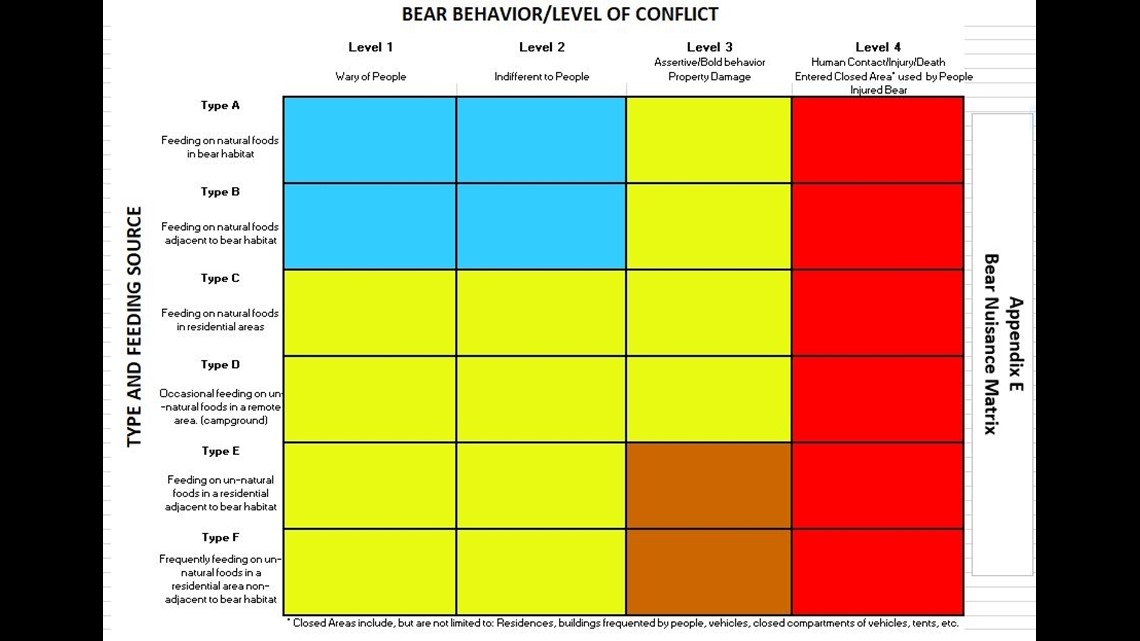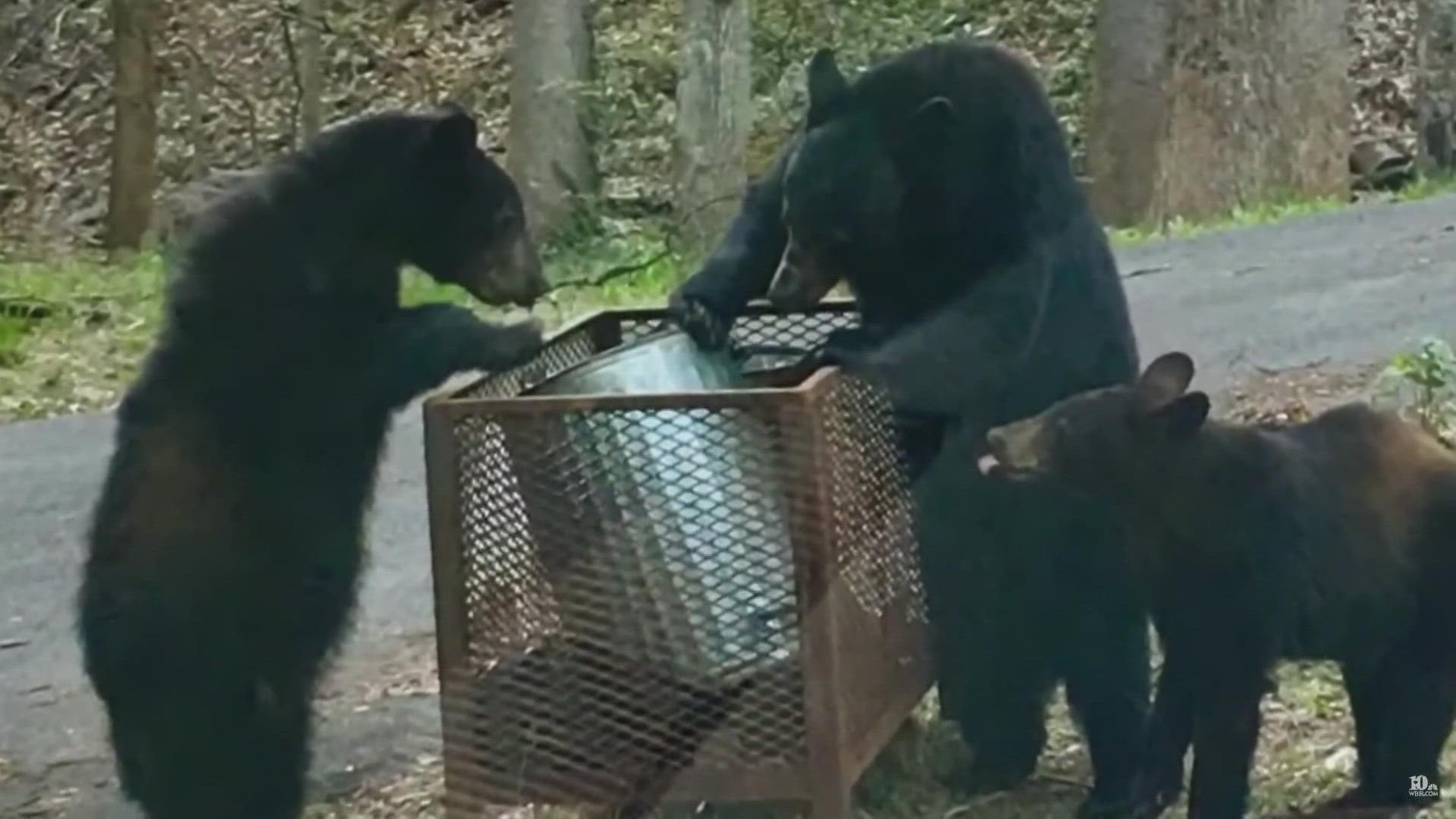SEVIER COUNTY, Tenn. — The Tennessee Wildlife Resource Agency euthanized a black bear on Wednesday after they said it scratched a woman as she sat on her porch in Sevier County.
They said a mother bear and her yearlings approached it. TWRA officials said the 90-year-old woman did all the right steps.
"The bears came onto her porch, and she had a chair on her porch. She was able to shake it in an attempt to scare the bears away, which is exactly what we tell people to do," said Matthew Cameron with TWRA. "You want to get loud, make loud noises, look big, throw things, whatever you can do to try to intimidate a bear as approaching you."
The mother bear scratched the woman on the arm and ran away. She went to the hospital for non-life-threatening injuries. The bear was euthanized.
It was the second bear to be euthanized in the area in a week.
Another was euthanized in the Great Smoky Mountains National Park on Monday after it ripped into a family's tent, scratching a mother and her 3-year-old child.
Both TWRA and the GSMNP said euthanasia is not a decision they make lightly. The bear's behavior must be at a 'concerning' level before they even think about putting them to rest.
According to TWRA, bears start to become problematic once they're exposed to human food.
"Most issues that we have with black bears come back to food conditioning, and they have access to unnatural human foods. And that's what causes them to lose their natural fear of humans," Cameron said.
The Smoky Mountains Bear Wise community task force has been preaching this message since its beginning in 2016. Ken Voorhis lives in Wears Valley, and he is also a community partner with the task force.
"Once they find a little garbage, bird feeders, or some dog food, they get a taste of that food," Voorhis said. "Bears are very smart, they're opportunistic, they will come back to the same places again."
TWRA says they will come back again and again and again. Especially once they find a spot that provides them with a quick meal.
Cameron explained it with a more relatable analogy.
"For humans, we can either go drive to the store and buy all the ingredients for the food, take it home, mix it all up, cook it and consume it. And it takes a lot more time and effort to do that. Or we can go through the drive-thru at your favorite local fast food restaurant and we can pay a few bucks get the whole meal and eat it in one spot," Cameron said.
He said bears are the same way when it comes to dependency on human foods. They can get that quick easy meal, get a lot more food, and don't have to work as hard to find it. But, that doesn't mean it's better for them. In fact, it's really harmful.
The addiction to human food leads some bears to aggressive behavior.
"Once they lose that natural fear of people, they begin to approach them and usually ends up with them being trapped and relocated or they could have to be euthanized on-site," Cameron said.
The TWRA uses a chart system to analyze any given bear's threat level to society. If a bear falls into the red category, it means they have been feeding on unnatural foods, made contact with humans, entered a closed area, and harmed or killed a person. If those criteria are met, only then a bear can be euthanized.


Bears in the yellow and orange category are contenders for catch and release on-site or the catch and relocate program. However, most relocated bears are still not finding happy endings.
"Bears that are trapped and relocated because of nuisance and food conditioning are often dead within a year," Cameron said.
But, the task force says these bear deaths can be prevented if people live more responsibly with wildlife.
"Pick up your garbage," Voorhis said. "Just check around your house to see if there are things that might be bear attractants. And tell your neighbors, tell your friends, hold each other accountable."
Voorhis said he wants to see these black bears stay wild.
"I want to see him in a natural habitat. I want that bear to stay wild," Voorhis said. "I want that bear to be scared when it sees me to run off into the woods. And a lot of the bears around here aren't like that right now."
You can find tips for how to be more Bear Wise on their website.

